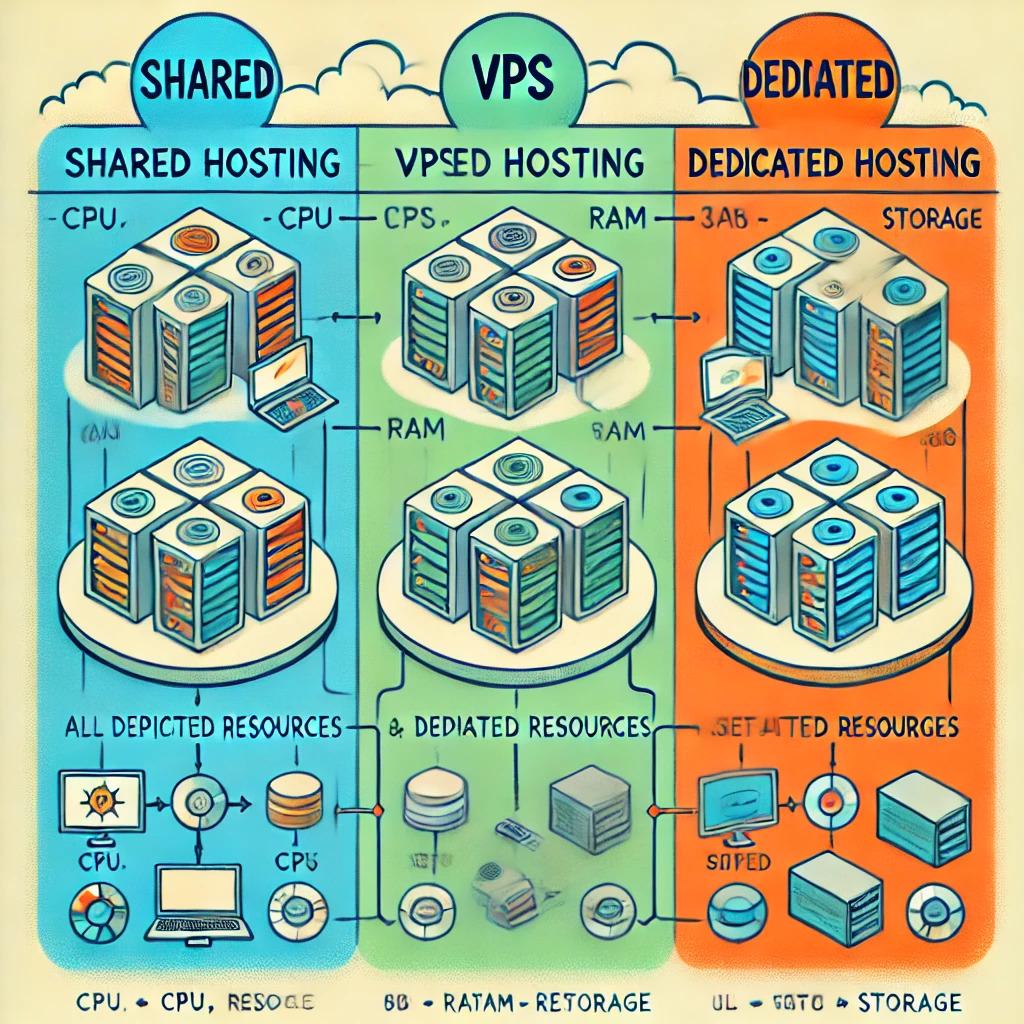The Basics of Web Hosting: Shared, VPS, and Dedicated Hosting Explained

Choosing the right web hosting solution is one of the most crucial decisions for any website owner. Whether you're just starting or managing a growing business, understanding the different types of hosting—Shared, VPS, and Dedicated—is key to finding the perfect fit. In this article, we’ll explore what each type offers and help you make an informed choice for your website. Shared Hosting Shared hosting is the most affordable and beginner-friendly option. In this setup, multiple websites share a single server's resources, such as RAM and CPU. While this makes hosting cost-effective, it can also result in slower performance, especially when other sites on the same server experience high traffic. Shared hosting is ideal for small personal sites, blogs, or startups that don’t expect heavy traffic. VPS Hosting Virtual Private Server (VPS) hosting offers a middle ground between shared and dedicated hosting. Though you still share a server, each website is hosted in its own "virtual" environment, meaning you have more dedicated resources and better performance. VPS hosting is perfect for medium-sized businesses or websites that have outgrown shared hosting but don't require a full server to themselves. Dedicated Hosting Dedicated hosting provides the most control and power, as your website is the only one hosted on the entire server. This option is best for large enterprises, e-commerce websites, or high-traffic websites that need maximum performance, security, and customization. The trade-off is that it comes with a significantly higher price tag compared to shared or VPS hosting. Conclusion Understanding these hosting types helps you choose the one that best fits your website’s needs. Shared hosting is great for beginners, VPS is ideal for growing websites, and dedicated hosting offers unmatched performance for large-scale operations. Consider your traffic expectations, technical needs, and budget when making your decision.
